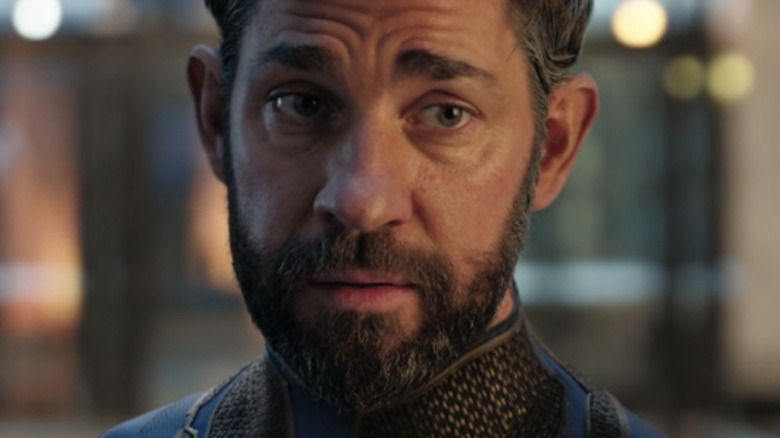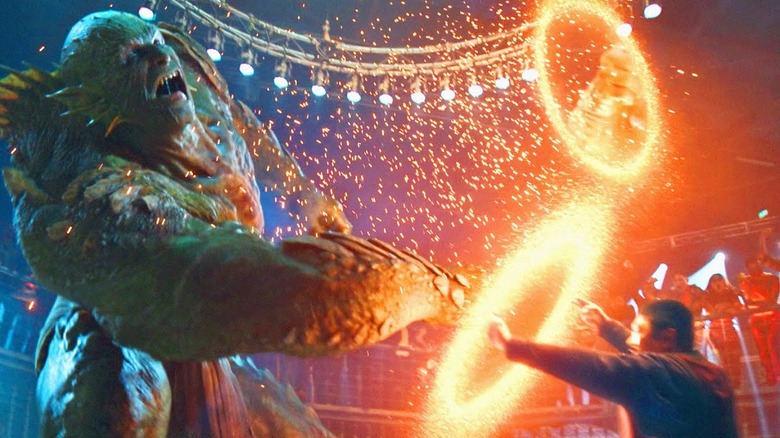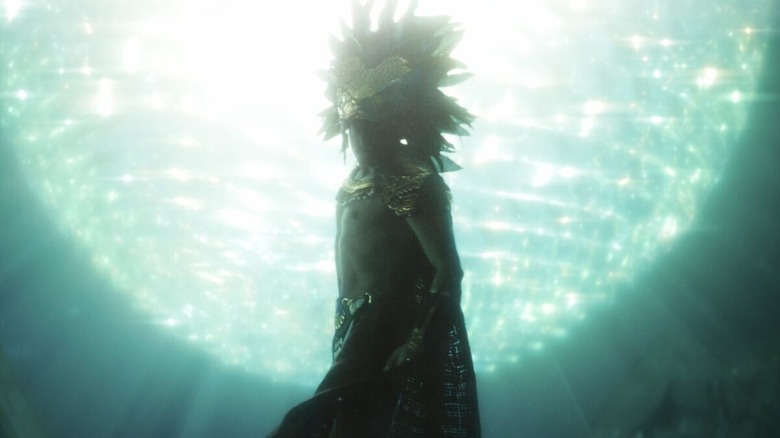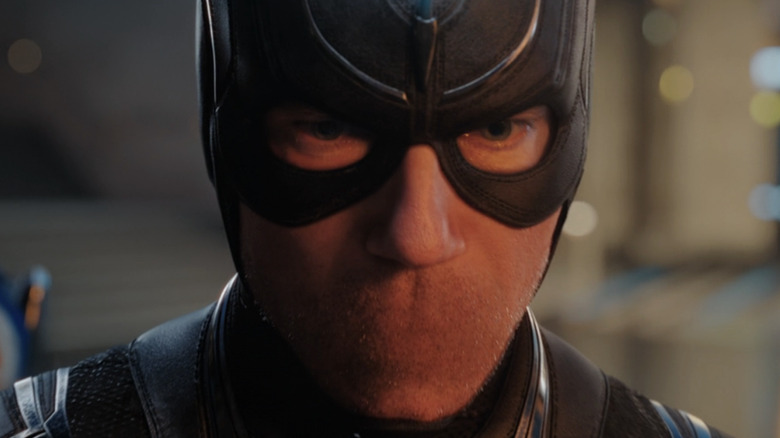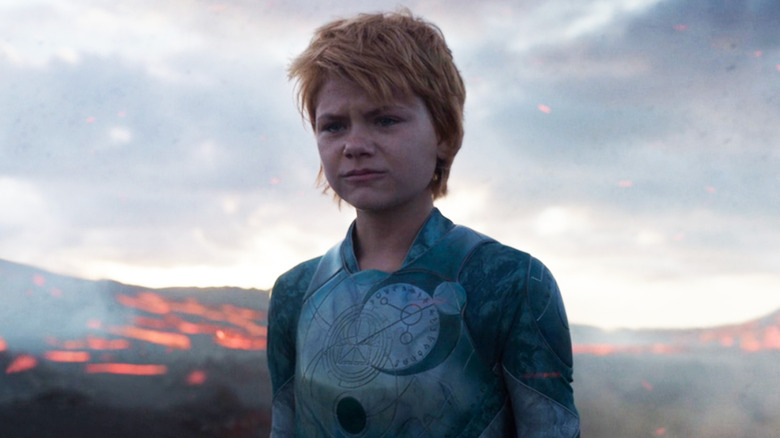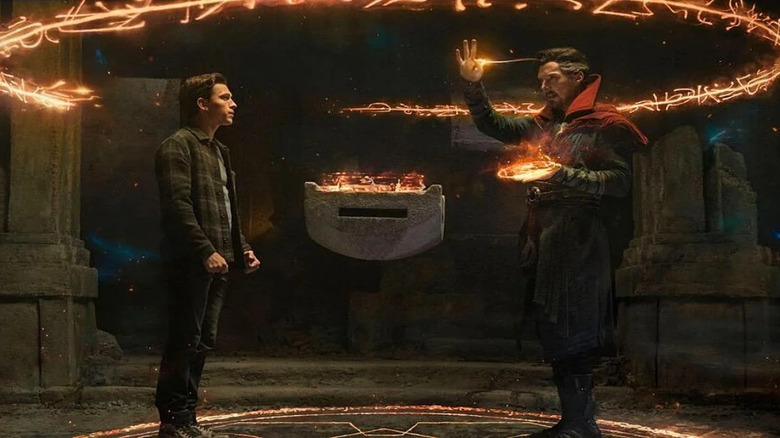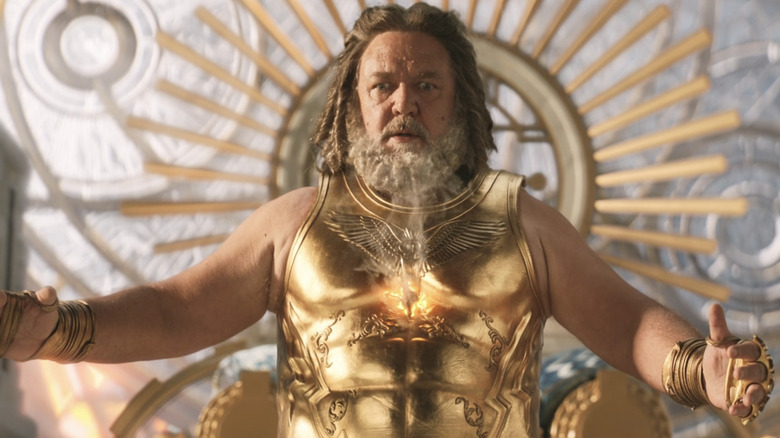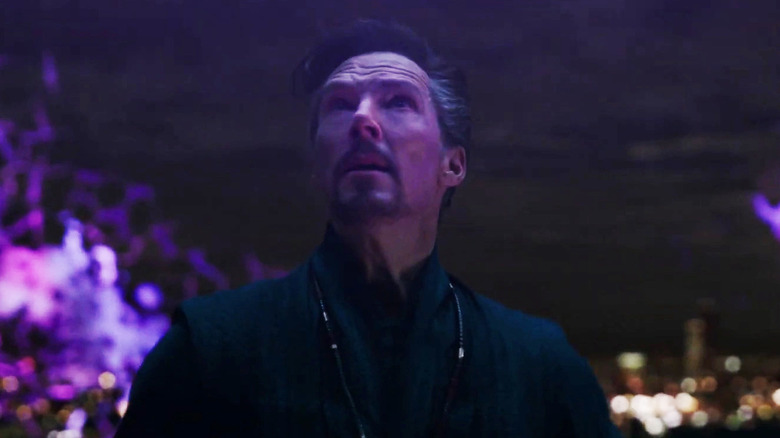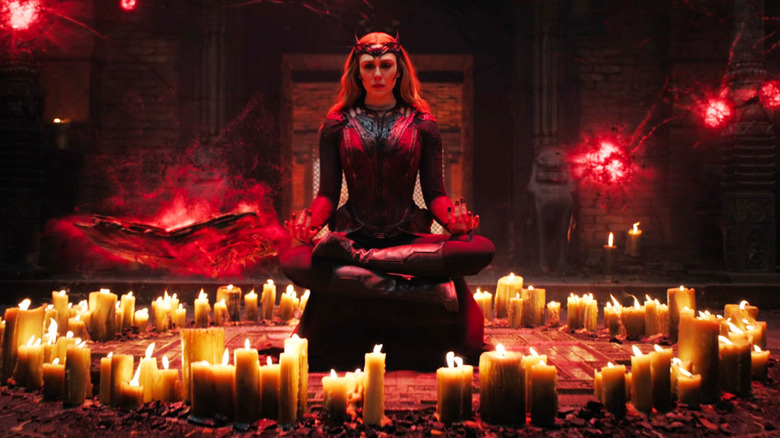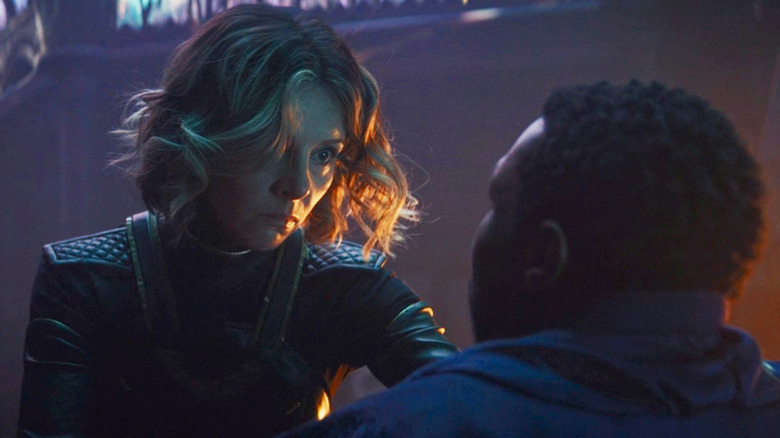Marvel's Phase 4: The 10 Worst Decisions Made By Superheroes Ranked
Much has been said about Phase 4 of the Marvel Cinematic Universe, from glowing praise to brutal rejection, with many opinions in the middle citing how simply surprising it has been. But amid the huge range of reactions, one note has popped up more than perhaps any other: this time around, these Marvel heroes really seem to cause their own problems.
With Phase 5 revolving around multiversal incursions, and an inevitable all-out multiversal war — already dubbed "Avengers: Secret Wars" — it is impossible to ignore the fact that all the MCU's multiversal problems have come from its heroes, not its villains. Even when you zoom in on the smaller stories, the ones set firmly in only one reality, the trend of Marvel's heroes creating their own messes is everywhere.
Though the scale ranges from simple spats between simple human mercenaries all the way up to gods destroying universes, the result is the same: doom and gloom find the MCU's star characters and it is all too often their own fault. Now that the era is over, we can explore the 10 worst decisions made by Phase 4 superheroes.
10. Yelena Belova skips basic intel
One of the biggest trends in Phase 4 was the introduction of replacements and analogs for the MCU's earliest superheroes, especially the core six Avengers, for reasons both in-universe and the real world. Of all of these many new faces, Yelena Belova (Florence Pugh) is by far the most similar to her original counterpart. Just like Natasha Romanoff (Scarlett Johansson), she is a Russian-trained super-spy, a member of the infamous Black Widow hit squad, and she's even Romanoff's sister. The sisters' similarity is why it makes Belova's first major solo decision one of the worst in Phase 4. Unlike the old Black Widow, this new one doesn't seem too concerned with the "intelligence" part of being an intelligence agent.
In the post-credits scene of "Black Widow," Valentina de Fontaine (Julia Louis-Dreyfus) approaches Belova with an assignment: assassinate Clint Barton (Jeremy Renner), who she claimed was "the man responsible for your sister's death." For some reason, the world-class operative Belova takes de Fontaine at her word, never once investigating the truth of her claims, and decides to try and kill Barton during Season 1 of "Hawkeye." Had Belova chosen instead to do any basic recon or fact-finding — the job description for spies — she would have known that de Fontaine was lying and saved herself a lot of time and energy chasing an Avenger around New York City during Christmas.
9. Wong doesn't care about laws
Phase 4 has been unofficially referred to as "Phase Wong," and there's a good reason for it: Wong (Benedict Wong) has appeared in more Phase 4 projects than anyone else in the MCU, most often there to provide aid and counsel to other heroes. It's a role that makes sense for Earth's new Sorcerer Supreme, but both as an adviser and a sorcerer, Wong's decisions are decidedly un-Supreme.
In "Shang-Chi and the Legend of the Ten Rings," we catch up with Wong and a long-absent Abomination (Tim Roth) when we find out the two have been battling each other in underground Chinese street fights. Later, "She-Hulk: Attorney at Law" gives Wong a chance to explain why. According to Wong, he routinely used his newfound powers to break Abomination out of prison and use him as his new sparring partner ... and that's all.
The excuse that Wong gives for repeatedly setting a gamma-irradiated monster free, taking part in an illegal fight club, violating United States law and extradition treaties, and absolutely destroying the U.S. government's trust in his mystic order is that Wong wanted to practice his portal technique. This gross misuse of his power, however, pales in comparison to the approval he gave Doctor Strange (Benedict Cumberbatch) when Strange wanted to magically rewrite the brains of every person on Earth (and a few in space).
8. Shuri chooses to fight Namor at sea
Phase 4 officially ended with the release of "Black Panther: Wakanda Forever," and with it, another baffling choice on behalf of its protagonist, keeping the trend going all the way to the very end. The movie's central concern (and for many fans, its greatest promise), is the reveal of the MCU's new Black Panther. Shuri (Letitia Wright), sister to the former Panther and new Queen of Wakanda, takes up the mantle, but in her first major battle proves she has a long way to go to match up to her big brother. After all, who in their right mind would choose to battle Namor (Tenoch Huerta), King of the Seas, on the open ocean?
It's been touched on before, but we can't discuss terrible decisions in Phase 4 without mentioning how Shuri's plan to defeat Namor makes no sense. When beset by an unprecedented threat from the deep seas, Shuri has the brilliant idea to fight them ... on the deep sea. What's even worse is that the supposed prodigy only crafts this master plan after figuring out that Namor's godlike strength is entirely dependent on his proximity to water. So, naturally, using the information that water empowers Namor, Shuri gathers her best warriors onto a boat and calls Namor out in the middle of the Atlantic Ocean.
7. The smartest man alive is stupid
The MCU has more than its share of super-geniuses, heroes who push science forward by decades and invent technologies that fundamentally change humanity's standing in the greater universal society. However, even the brightest bulbs have made some astoundingly dim decisions, and perhaps the brightest of them all gave us one of the dimmest. Reed Richards, aka Mister Fantastic, aka the Head of the Illuminati, aka the smartest man alive, decided to confront the multiverse-level threat that was the Scarlet Witch (Elizabeth Olsen) by showing her his greatest weapon, explaining how it works, and then giving her enough time to destroy it.
By the time she breaks into the Illuminati headquarters and decimates their legion of Ultron robots, the Witch has already proven herself a deadly threat. And yet, the smartest man alive decides to meet her in person and chooses smugness instead of strategy. Instead of taking a preemptive (or rather, just "emptive," since she had already murdered half the base) strike, or even just keeping cards close to his chest, Richards stands mere feet from Wanda, places Black Bolt (Anson Mount) right in front of her, and explains that the Inhuman "could destroy you with one whisper from his mouth." This, of course, led to the biggest embarrassment in the history of the Illuminati when Wanda innocently asks, "What mouth?"
6. Sprite chooses love over planet Earth
In a lot of ways, "Eternals" is a symbol for the MCU's Phase 4 as a whole. Like the larger Phase around it, "Eternals" was met with extremely mixed reviews. The movie left audiences wondering how it fits into the larger story, and, of course, featured some awful decisions on the part of its heroes. It would be easy to single out Ikaris (Richard Madden) for his decision to support the Celestials' plan to wipe out the human race — a clear no-no. But at least Ikaris made that choice after weighing what he considered the greater good in the universe's equilibrium. Sprite (Lia McHugh), on the other hand, also joined Team Genocide but only did so because she had a crush on Ikaris.
It strains credulity to the breaking point that Sprite or any other 3,000-year-old being could make such a massively moral, existential decision based on mere unrequited infatuation, but that is exactly what happened when the Eternal split. Citing her frustration that she has spent her time on Earth in the body of a child, never able to have a relationship or a family, Sprite claims that she would rather just start over. Of course, that fresh start would only come at the cost of eight billion humans.
5. Spider-Man doesn't think anything through
For a science and technology prodigy, Peter Parker (Tom Holland) has some objectively terrible decision-making skills. He might almost earn a pass because of his age if it weren't for both his aforementioned genius and the unimaginable damage he causes, again and again. In his first solo movie, Parker caused the destruction of the Staten Island Ferry — while it transported a full load of cars and people — and in his second movie gave a murderous thief that he just met a one-of-a-kind piece of Stark tech capable of commanding satellites and robot armies. Yet somehow both of those debacles were nothing compared to his next outing, Phase 4's "Spider-Man: No Way Home."
Not only does Parker convince the world's most powerful sorcerer to tamper with the memories of everyone on Earth, he then chooses to interrupt the spell over and over until it breaks completely — taking the foundations of the universe with it. Just in case you missed it, he only felt compelled to do so because that murderous thief we mentioned, Mysterio (Jake Gyllenhaal), took Parker's Stark tech gift and used it to become an international terrorist and then reveal Parker's identity as Spider-Man to the world. If that sounds like a lot, just imagine how it would feel to be one of the many innocents swept up in Parker's selfish spree.
4. Thor starts a god war
The MCU's version of Thor (Chris Hemsworth) is becoming hard to pin down. On the one hand, he's spent the majority of his last two films as more of an improv comedian than a Viking God, but on the other hand, he clearly has the capacity to turn on a dime and stab someone through the chest in a fit of rage. In fact, he did exactly that in "Thor: Love and Thunder," and his victim was none other than Zeus (Russell Crowe) himself, Supreme Deity of the Greek Pantheon and head of the interdimensional Council of Godheads. Regardless of whatever righteousness Thor was feeling at the time, he (as far as he knew) assassinated a king and worse: a king of kings.
To put the Thunder God's blunder into perspective, the assassination of one prince from one country on Earth kicked off World War I, and Zeus wields (literally) astronomically more power than poor Franz Ferdinand ever did. The Council of Godheads is composed of deities from all across the universe, meaning Zeus almost certainly exerts some level of influence over millions of nations instead of just one. And though the movie's post-credits scene reveals that Zeus survived Thor's skewering, he nonetheless predictably vowed revenge on Thor, as well as the entire superhero community.
3. Doctor Strange breaks reality
Whatever slack you can cut Spider-Man for his role in the cosmic disaster that was "Spider-Man: No Way Home," Strange deserves none of it. Unlike Parker, he is a fully-grown adult, and also unlike Parker, has had decades in which to hone his particular genius into genuine wisdom. And yet, Strange spent the majority of his time in Phase 4 breaking and re-breaking reality.
It began in "No Way Home" when Strange's unparalleled recklessness tore open holes in the boundaries between universes — which for anyone else, would be enough damage for one lifetime. But Strange followed that up with a series of mistakes in "Doctor Strange in the Multiverse of Madness" that somehow destabilized the multiverse even further.
After learning from the Illuminati that using the spellbook known as the Darkhold led another version of Strange to destroy multiple realities, our Strange decided to do exactly the same thing, anyways. He used the Darkhold, dreamwalked, and possessed a dead body; all major no-nos. The post-credits arrival of Clea (Charlize Theron) then confirmed what should have been obvious: Strange's actions have made the multiversal crisis much, much worse.
2. Wanda doesn't understand the multiverse
It's easy to point out terrible decisions made by the Scarlet Witch during "Doctor Strange in the Multiverse of Madness." After all, she does emerge as the film's major villain, one willing to murder countless innocent lives to achieve her personal desires. Undoubtedly, her turn toward cruelty is a bad decision, at least in a moral sense, but what's worse is her refusal to do even basic homework about the multiverse before deciding to completely upend it.
Wanda's motivation throughout the film is reuniting with her lost sons, Billy and Tommy. As understandable a goal as that is, all understanding goes out the window when Wanda then decides that the only way to achieve her goal is to conquer and destroy anything she wants. She claims that she's searched every possible reality and essentially every other Wanda has it better than she. Therefore, she reasons, she'll just have to kidnap the multiverse-traveling America Chavez (Xochitl Gomez), kill her, steal her powers, and travel from universe to universe until she finds just the right alternate Wanda to murder with just the right set of alternate Billy and Tommy's to raise.
It's a wildly insane plan, especially given the fact that the multiverse is potentially infinite, with new universes created by every new choice (i.e. in an infinite universe). The likelihood of there being universes with Billys and Tommys who don't have their own Wanda is infinitely high. Instead of simply assuming the role of a Wanda who just passed (a la "Rick and Morty"), Wanda decides to murder and destroy her way to domestic bliss.
1. Sylvie kills He Who Remains
Of all the bad decisions in the MCU's Phase 4, none are worse than Sylvie's fateful decision in the final episode of "Loki." By the end of that show's first season, Loki (Tom Hiddleston) and Sylvie (Sophia Di Martino) have managed to break free of the Time Variance Authority's imprisonment, destroyed the fake Time-Keepers supposedly in charge, and reached the Citadel at the End of Time. There, they finally meet the one actually in charge of all of the confusing variant/time-stream/multiverse complexity: He Who Remains, a variant of the being we fans know as Kang the Conqueror. Unfortunately for that Kang, every other Kang variant, and indeed all life in the multiverse, Sylvie elects to murder him within five minutes of meeting him.
He Who Remains warns Sylvie, seemingly honestly, that he's "lived a million lifetimes" and that his plan to prevent multiversal wars and incursions, aka the TVA, is the only strategy that works. He warns them further that if they kill him, all of his most unstable, maniacal variants will be freed from his control and begin an unprecedented multiversal war. Well, Sylvie is a Loki variant, so she chose the path of chaos by killing He Who Remains, ultimately destroying the Sacred Timeline and officially sending the MCU on the path to the "Secret Wars."
